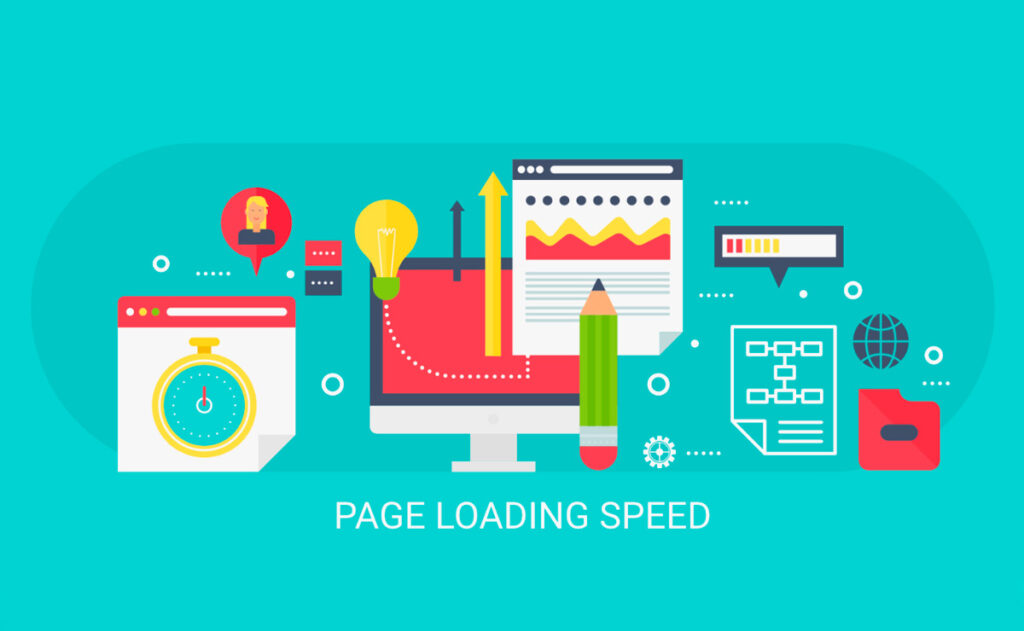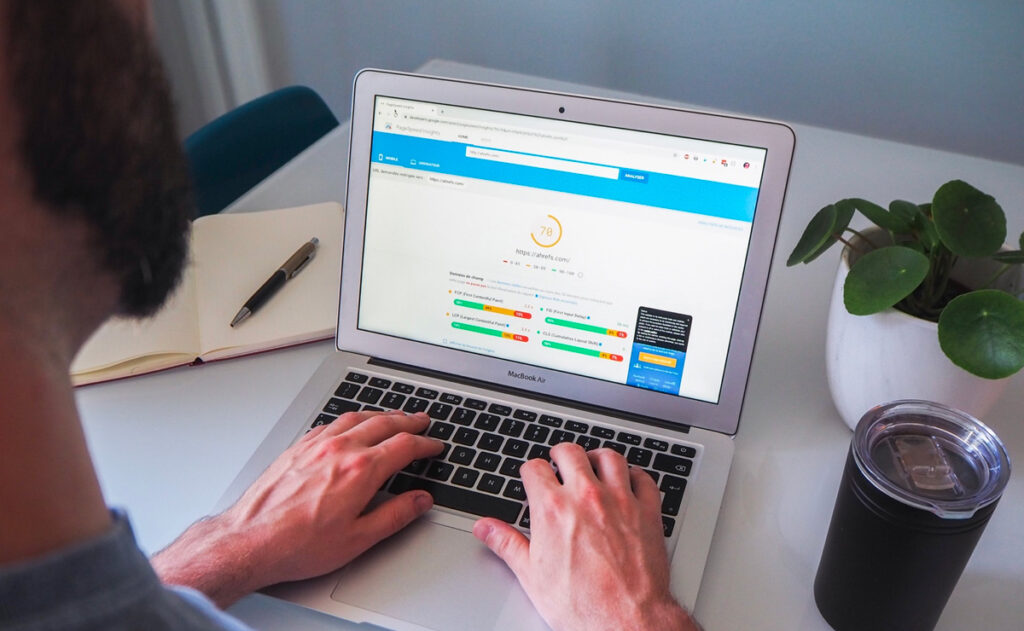Why Your Orthodontic Practice Needs a Fast Website

We all know how difficult and frustrating it can be to deal with a website that loads slowly. Most of the time, it is simply easier to return to your search and just try a different result. However, being a small business owner, especially one with a medical, dental, or orthodontic practice, this can have a really severe effect on your growth.
New patient inquiries are well-qualified leads, based on their interest. Losing these leads will strike directly at your bottom line.
For your website to be effective, it must be desktop and mobile-friendly, load fast, and be easy to navigate. So, what should you do if your website is slow or even freezes? What can be done to address these problems? Let’s take a look at how you can improve your website and make it an effective tool for new and existing patients.

What is Site Speed?
In simple terms, site speed is how long a browser takes to get data from the server and then load a page.
Most pages load in between one and five seconds. The longer it takes the page to load, the more potential patients that you are losing. At two seconds, the number begins to drop dramatically, and you could be losing as many as half of the visitors who land on your webpage.
What is Behind a Slow Website?
There are lots of things that can cause a slow website. The specific content that you choose for your pages, such as Javascript files, videos, images, HTML code, and other multimedia, will all play a part in determining how fast or slowly your pages will load. In essence, webpages load in parts, not all at once.
The first part to load is the First Contentful Paint (FCP), which is the first thing you see loaded from a webpage. Next, the DOMContent Loaded (DCL) is everything that is there when the page is fully loaded. The more information that has to be loaded, the longer it will take your page to load. All of these things, as well as the server speed, will determine how fast your website will load.
You should also be aware that things related to the user’s browser and internet may also influence the speed at which your website loads. While you can’t control those factors, providing the fastest website you can from your end will improve all of your users’ experiences.

Is Page Speed the Same as Website Speed?
Page speed and website speed are both really important, but they are not the same thing. Page speed has to do with how fast each element on a web page loads. Website speed has more to do with the flow of the website and is measured by how quickly a user can land on a page and then interact with the lead form.
Having effective website speed means that a user is quickly and easily funneled through to booking their next appointment with your orthodontics practice.
Why a Fast Site Matters
Your website is often your first impression, and most patients will see it as a reflection of your overall customer service. Unfortunately, many customers will consider a slow site unprofessional or even broken, and most will never return.
Both common sense and research support the notion that you are losing customers with each second they wait. This means that how fast your website is will directly correlate with how much revenue it can help produce for you.
The truth is that people are just not that patient when dealing with commerce, and this is even more true when you are dealing with eCommerce. When you consider how quickly some people will leave a cart of goods and walk away because of a long line in a brick and mortar store, just think how much easier it is to simply click away and then click on a new option.
Search Engine Optimization
If your website loads slowly, that will cause Google to penalize your site and lower your ranking. This means that how fast your website is will be of major importance in winning the SEO battle. On top of that, having users “bounce” off of your page will also hurt your ranking because it lowers the average amount of time that a user spends on the page.
The reason that SEO matters so much is because it affects your Google ranking, which contributes to your overall visibility. Lack of visibility can mean that your orthodontics practice will be missing the opportunity to serve many new patients.
How Can I Improve My Website Speed?
If your page loads slowly, what can you do? The most obvious answer is best. You need to streamline the page and eliminate some of the content. Remember that with effective marketing and branding, often, less is more. The size and speed of your site really matters, especially to mobile users, who now make up more than half of the marketplace.
Here are a few other ways that you can improve the speed of your page:
- Compress and reduce the size of images.
- Instead of loading aspects one at a time, load some elements together.
- Switch to a faster DNS provider.
- Upgrade your hosting and invest in a dedicated server.
- Enable browser caching.
You can do many things to improve the user experience and the speed of your website, and these are just a few examples.
Need Assistance?
We know that your patients and their care are your top priority, not running a full-scale tech department. That’s why we are here to help! Houmanity developers build our websites to optimize for speed and create a much more user-friendly experience. This results in more new leads, more repeat customers, and increased revenue for you.
If you are busy being a great Orthodontist, but you still want a better and faster website, or perhaps, you just don’t know where to start, Houmanity can help. So reach out to us today and let us help you build an amazing website to help grow your practice.
